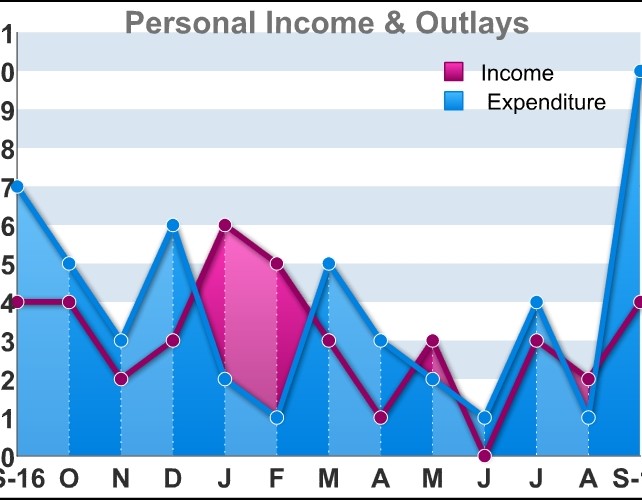
While the Commerce Department released a report on Monday showing U.S. personal income rose in line with economists in the month of September, the report also showed a bigger than expected jump in personal spending.
The report said personal income climbed by 0.4 percent in September after edging up by 0.2 percent in August. The increase in income matched economist estimates.
Disposable personal income, or personal income less personal current taxes, also increased by 0.4 percent in September following a 0.1 percent uptick in the previous month.
The Commerce Department also said personal spending surged up by 1.0 percent in September after inching up by 0.1 percent in August. Economists had expected spending to increase by 0.8 percent.
Real spending, which is adjusted to remove price changes, rose by a more modest 0.6 percent in September after edging down by 0.1 percent in August.
With spending rising by more than income, personal saving as a percentage of disposable personal income tumbled to 3.1 percent in September from 3.6 percent in August.
"The lower saving rate limits the scope of households to boost consumption beyond gains in income," said Paul Ashworth, chief U.S. economist at Capital Economics.
He added, "Most households should get the benefit of a reduction in taxes early in the New Year, but we won't know what proportion of households will be net beneficiaries of the Republican's tax cuts until the details of the plan are released this Wednesday."
A reading on inflation said to be preferred by the Federal Reserve showed the annual rate of core consumer price growth in September was unchanged from the previous month at 1.3 percent.
by RTT Staff Writer
For comments and feedback: editorial@rttnews.com
Economic News
What parts of the world are seeing the best (and worst) economic performances lately? Click here to check out our Econ Scorecard and find out! See up-to-the-moment rankings for the best and worst performers in GDP, unemployment rate, inflation and much more.

